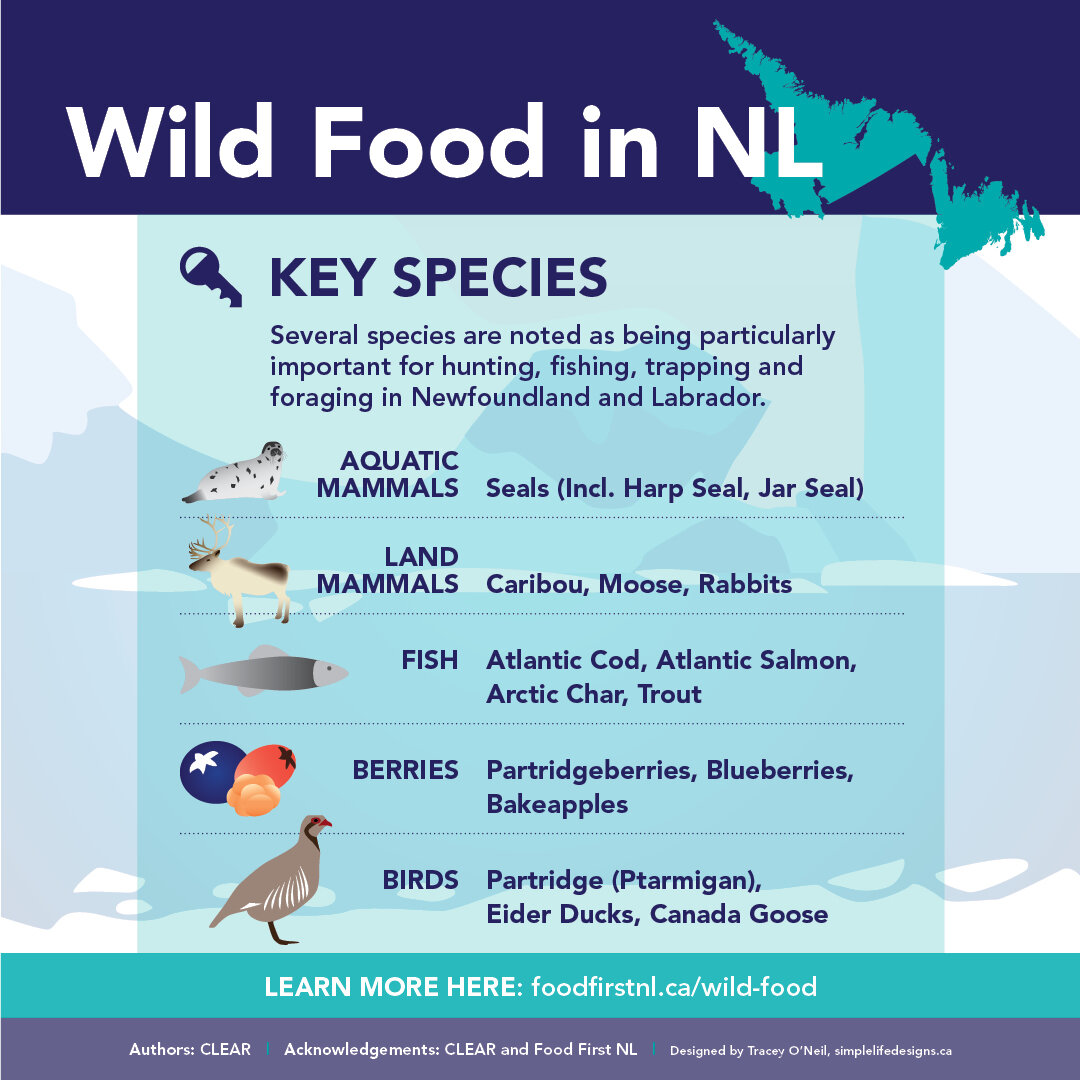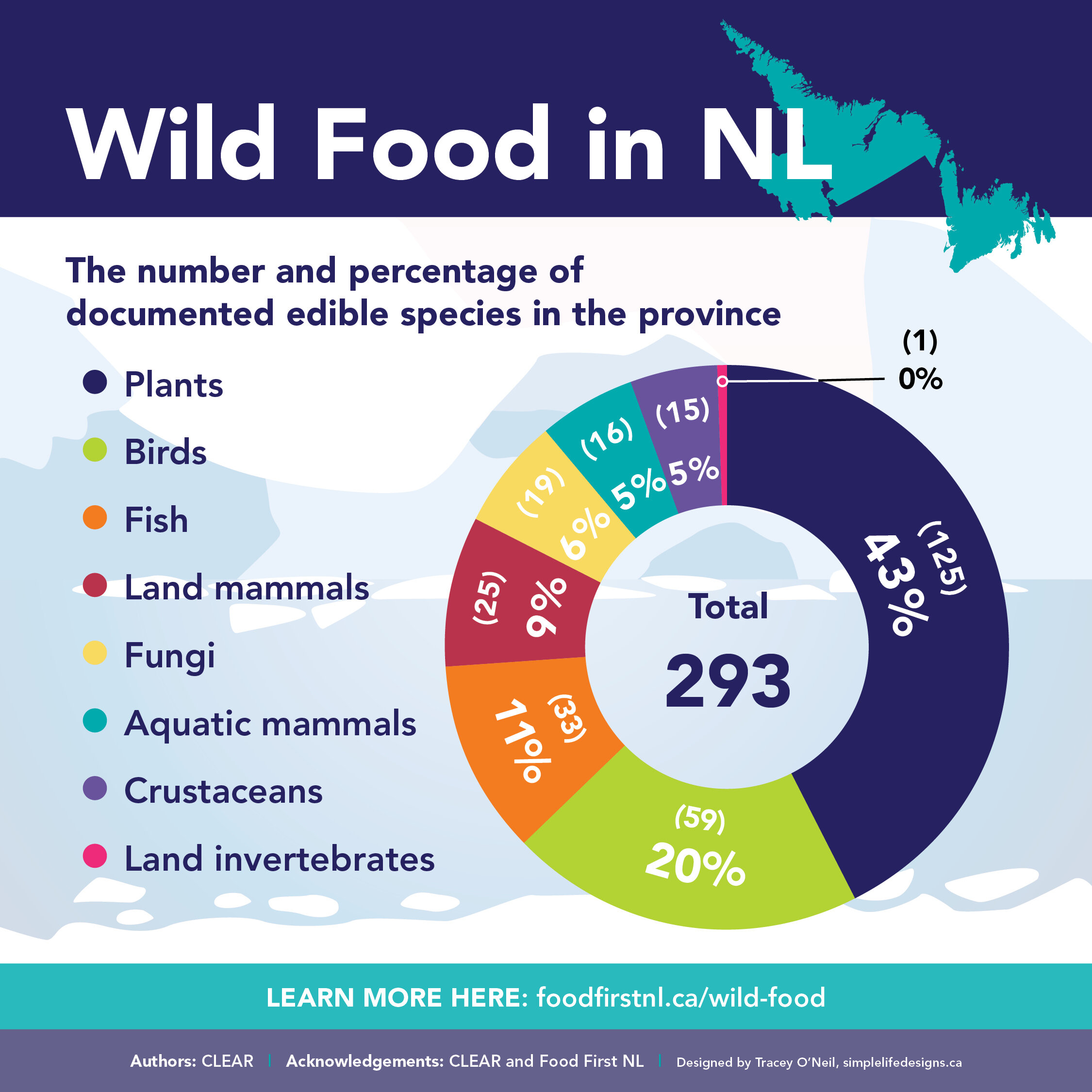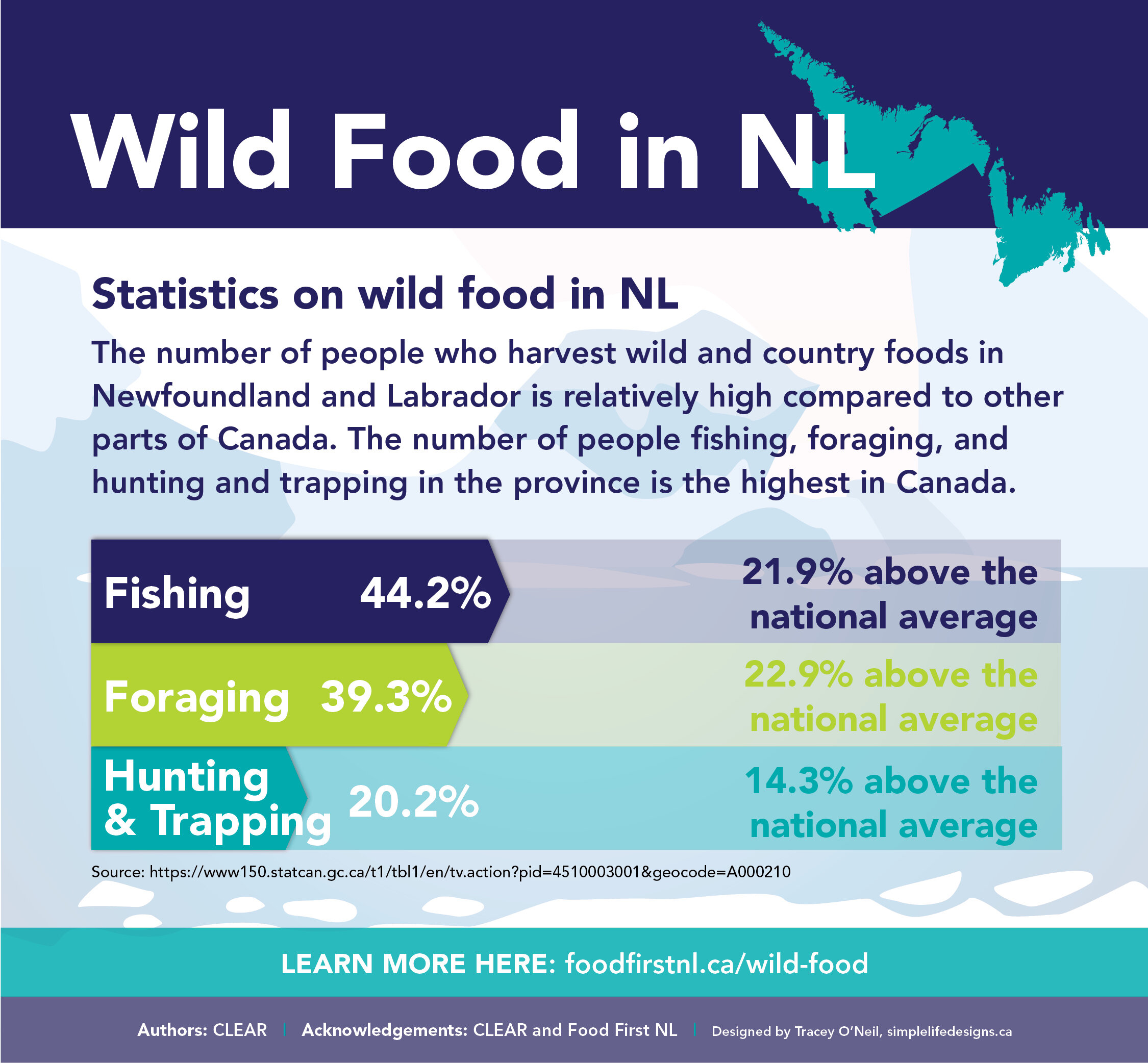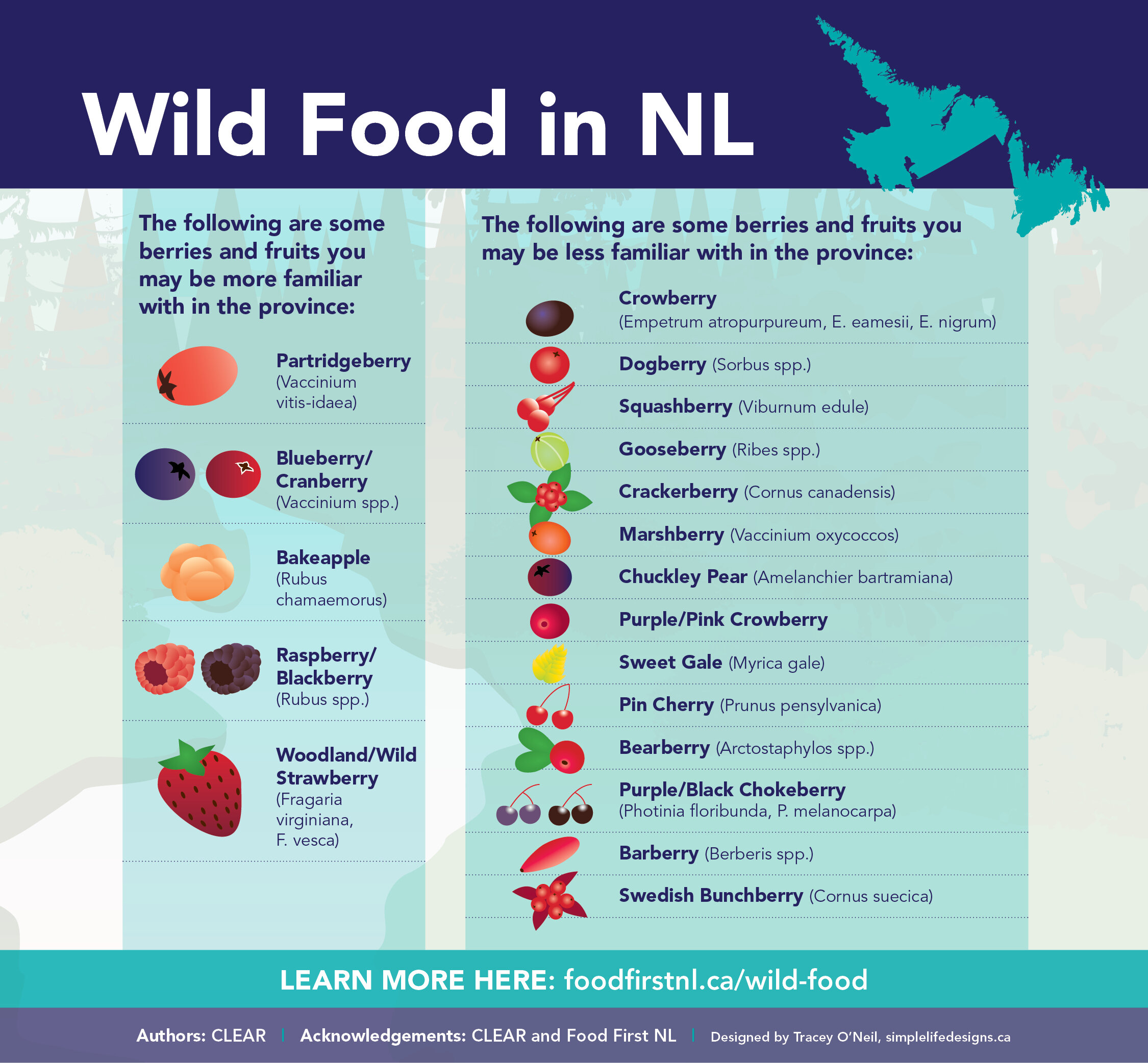Eating wild and country food is so important in Newfoundland and Labrador, and the number of people that hunt, fish and forage here is high compared to other parts of Canada. There are many sources of information on wild and country food in the province, including stories passed on through families and communities, field guides, historical surveys, hunting permits, academic research, and more. Civic Laboratory for Environmental Action Research (CLEAR) had the bright idea to bring those sources of information together in one place for the first time, into the Wild and Country Food in NL Database. It has information about all the documented wild and country foods that people currently and historically have eaten in Newfoundland and Labrador. The data includes entries for 8,000 years ago to present! It’s a new tool to help individuals, communities, academics, and others to better understand the food that’s all around us.
Click on the button below to see the database as a google sheet. Alternate accessible formats can be made available by sending a request to hello@foodfirstnl.ca. CLEAR also created four graphics and two fact sheets based on the database that you can view and download below.
Graphics
Download the graphics as a PDF
Plain text version of the graphics and fact sheets in a Google Doc suitable for screen readers and screen magnifiers




Fact Sheets
Download the fact sheet ‘Overview of the Importance of Wild Food in NL’ as a PDF
Download the fact sheet ‘The Berries and Fruits You Know and Some You Don’t’ as a PDF
Plain text version of the graphics and fact sheets in a Google Doc suitable for screen readers and screen magnifiers
Civic Laboratory for Environmental Action Research (CLEAR) is a feminist, anti-colonial, marine science laboratory. Their methods foreground values of equity, humility, and justice. They specialize in community-based and citizen science monitoring of plastic pollution, particularly of plastics in food webs. CLEAR researcher John Atkinson reached out to Food First NL to help share this research as part of a MUN Public Engagement Accelerator Fund project.
Special thanks to the Everybody Eats Community Food Self-Sufficiency Action Group for assisting with the process to share this content.
Banner photo by Ville Palmu on Unsplash




